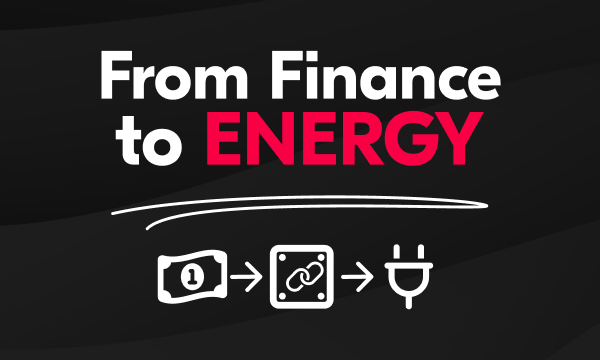Switzerland is one of the leading centers of healthcare R&D in the world. Developments in life sciences on a whole are contributing to a blockchain health niche. When you hear Switzerland, you often associate it with efficiency, precision, and cutting-edge technology. And there’s a very good reason for that. As a global hub of biotech innovation, Switzerland is at the forefront of the blockchain health sector.
Many link Switzerland with finance. But the medical industry is far larger. There is considerable crossover between the two industries. Medtech companies and biotech entrepreneurs took notice of the success of blockchain finance and are looking to blockchain for innovative solutions. For big pharma blockchain lends valuable advantages — ones that Swiss companies are investing in heavily. In this report, I’d like to dig deep into the Swiss life sciences sector and examine how blockchain fits in the larger industry.
Biopharma & blockchain health
Several factors influence Switzerland’s dynamic market development. First, attractive conditions encourage innovation and for international firms to base their operations there. Big players such as Roche and Novartis have headquarters in Basel. In addition, extensive networks of partners, universities, and R&D firms attract a deep talent pool.
According to a report from Swiss Biotech, the number of biotech companies in the medical sector increased by about 65% from 2006-2017. Favorable business conditions, as well as attractive industry development conditions, bolster the Swiss biotech ecosystem. In the years 2015-2017 there was a slight increase in employment in the industry. By 2017 there were about 7,500 employees in private companies and about 6,300 in public companies.
Interestingly, about 80% of companies are small and medium-sized enterprises, which in the case of willingness to establish cooperation usually facilitates the possibility of establishing contact and starting business talks. However, in the years 2006-2017, a stable downward trend occurred in the area of biotechnology industry suppliers. The fact that the number of such entities remains at a similar level is related to the existence of both M&A processes and the increasing involvement of European suppliers on the Swiss market.
The Swiss biotechnology industry is diverse and includes suppliers, service companies, and companies specializing in both product development and manufacturing. The presence of such a broad spectrum of entities in a rather small geographical area is one of the key strengths of Swiss biotechnology.

Innosuisse support
Innovative projects in the field of biotechnology are one of the key areas co-financed by Innosuisse, the Swiss Innovation Promotion Agency. This institution focuses on supporting projects with high innovation potential. Its aim is to encourage the SME sector to undertake such projects by offering them financial support in creating international partnerships.

Innosuisse has a budget of 200 million francs for this purpose. Between 2013 and 2017, 35-47 projects were supported annually, with total funding ranging from 14.4 million to 18.1 million francs per year.

Financial results of biotechnology companies in Switzerland. According to the analysis of data, the growth of the Swiss biotechnology market observed in recent years took place despite sometimes difficult access to financing such as venture capital or irregular IPOs. This phenomenon was particularly visible in the years 2009-2012.

Both the public and private sectors in Switzerland have robust revenue and both contribute to the overall dynamism of the Swiss market.

MedTech
Such a high level of development of the MedTech market in Switzerland results primarily from access to exceptional research equipment and a highly developed health care system, which stimulates innovation and creates demand for advanced medical technologies.
There are 1,400 companies on the market, consisting of suppliers, service providers, manufacturers, and traders. In addition to global corporations, the Swiss MedTech industry is also made up of many SMEs. 93% of companies employ fewer than 250 people and four out of five companies employ fewer than 50 people. Microenterprises with fewer than ten employees are the largest group.

Such a company structure provides an opportunity for the development of specialized entities or M&A transactions.
The top five Medtech companies in Switzerland:
- J&J Medical
- Roche Diagnostics
- Biotronik
- Sonova
- Medtronic
In 2017, Swiss medical device manufacturers invested between 6% and 18% of their turnover – and their suppliers between 5% and 9% in R&D. Nearly 75% of the VC investment in Switzerland in 2017 went to companies in the life science sector. The investment capital of MedTech startups in this period amounted to 87 million CHF.
Below are some numbers describing the MedTech market in Switzerland:
- 1,400 enterprises
- 58,500 employees
- 15.8 bln CHF income
- 2.3% GDP
Blockchain health
Patent application analysis and research program reports in Switzerland indicate that companies are increasingly active in digitization and data processing technologies, such as blockchain. Blockchain technology is a distributed, decentralized database that enables companies to store information and access it in real time. This technology, if used properly, can improve
Recently, medtech companies have taken an interest in blockchain health data management. One company doing this is the HIT foundation. The company has launched an application that facilitates clinical trials with blockchain. This solution would allow for the creation of a database containing information on each new drugs and the medical records of individual patients taking part in the studies. Pharma blockchain supply chain tracking is also a fascinating trend.
- The use of blockchain technology to store medical records of patients and other sensitive data on treatment and disease progression, which will enable the acceleration of data exchange between doctors, clinics and other medical facilities;
- Pharma blockchain supply chain tracking.
Conclusion
Switzerland’s life sciences sector remains among the most dynamic systems in the world. A deep commitment to R&D and investments in that sector boost the industry as a whole. Switzerland definitely can become the brain of Europe, no other European country currently has a better framework for researchers, founders, start-ups, and VCs than Switzerland.
Based on the Swiss Venture Capital Report (2017) in 2016 only 46.8 million Swiss francs was invested in fintech and over than 70% of whole investments, so 570.8 million francs was invested in the life science sector. This number is growing ex
Precision, science-savviness and a drive for excellence in life science research all contribute to the booming of this industry culture here in Switzerland. Investor interest in life science is growing as multinational companies as well as the experts they attract flock here.
Life science, as I have mentioned, is often overshadowed by the much bigger financial sector. However, there are some projects that are implementing Blockchain in this extremely specialized industry and resolving complex problems that impact wider society.
Personally, I believe that Switzerland and especially Basel is the place in the world to invent groundbreaking inventions in blockchain health that will change healthcare for the better.



